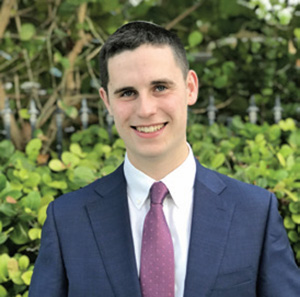
In his recent article published last week in this space, Rabbi Steven Pruzansky identifies “two models” of Modern Orthodox Jews that exist in our community today, a dichotomy that he labels with two types: the “Avraham” type and the “Lot” type. While an “Avraham” is a standardly pious Jew who “[knows] the secret of Jewish life in the exile: how to be part of society while still remaining apart from it,” a “Lot” is a minimally committed Modern Orthodox Jew who attends the “University of Sodom,” where he learns “that God doesn’t exist and that His Bible and moral laws were man-made.”
As a sophomore currently studying computer science at Princeton, I find Rabbi Pruzansky’s article objectionable on two fronts. First, I believe he incorrectly portrays the realities of secular college. Second, I find the tone of his article unnecessarily sarcastic and mocking.
One of Rabbi Pruzansky’s portrayals of secular college Jews is that they “[attend] class on Shabbat but without writing or otherwise breaching a Shabbat stricture.” I am unaware of any American college today that requires, or even offers classes on Saturdays, and in my experience and that of numerous friends and relatives on other campuses, colleges nowadays bend over backwards to accommodate Jewish students who need to miss classes due to Yom Tov observance. Moreover, I think Rabbi Pruzansky paints with too broad a brush in suggesting that Jews at secular colleges do not afford Shabbat the kavod it deserves. I have witnessed firsthand—at Princeton and at other similar colleges I’ve visited—Shabbat observance consisting of davening, shiurim and chavrusas learning together throughout the day, as well as friends playing board games, going on walks, napping, socializing and reading. Shabbat in Princeton is much like the Shabbat I know from home, not the version portrayed by Rabbi Pruzansky.
Rabbi Pruzansky’s article focuses on those few individuals who grew up observant and abandoned religion at secular college, while neglecting to mention the many positive religious expressions that are commonplace on many secular college campuses for those who seek to remain true to their Jewish values. I imagine that Rabbi Pruzansky’s negative anecdotes of Jews at secular college are indeed inspired in part by real-life examples; however, by focusing only on these examples, he paints an overly negative picture of the Jewish community at secular colleges. While I cannot speak for all college communities, I can confidently and proudly testify to Princeton’s well-attended minyanim, daily chavrusas, hopping beit midrash and overflowing kosher dining hall. In short, the Jewish community at Princeton is passionate, successful and thriving.
My greatest concern, though, with Rabbi Pruzansky’s article, is the sarcastic and unnecessarily critical tone. Even assuming that Rabbi Pruzansky’s portrayals are intended for some rhetorical effect, his article still, in its essence, is overly antagonistic and divisive. It is laden with snark, sarcasm and repeated instances of two-dimensional characterizations that amount to othering (not to mention a rather bizarre #MeToo joke). The sarcastic tone results in Rabbi Pruzansky’s article merely criticizing and poking fun at a significant portion of our community without offering practical suggestions.
Sentiments like those published by Rabbi Pruzansky have real consequences. Many of my friends and I share the experience of coming home for Shabbat and having community members interrogate us about our religious commitments, such as asking whether we live in the dorms, if we still eat kosher and daven, if we learn, if we have non-Jewish friends. Granted, these are all important issues, and responsible students or parents thinking about secular college should try to gain a complete picture of the schools they may attend. But interrogating young adults about whether they are “kovea itim” or live in coed dorms can come across as intrusive (I encourage readers to consider how they would feel if they were pressed by random community members about their Torah learning, or about their personal religious practices), and I think that sentiments like those found in Rabbi Pruzansky’s recent article only encourage this unproductive attitude. Cross-examining us on these sensitive and personal religious matters rather than asking us about our classes, interests or day-to-day lives conveys to us who attend secular colleges that some adults are less interested in finding out how we are doing and more interested in simply putting us down for attending secular college.
Rabbi Pruzansky’s eminence as the rabbi of the largest shul in Teaneck makes him well-suited, as a community leader, to reach out to and connect with the young adults in our community, including the challenges they face. For Rabbi Pruzansky to instead publicly and proudly participate in, legitimize and encourage mockery and division is all the more upsetting. After all, we are not running away from our communities, families and values, but are rather leading meaningful religious lives.
Hillel Koslowe is a proud Modern Orthodox Jew who grew up in Bergenfield. He went to TABC for high school, learned at Yeshivat Har Etzion, davens at Congregation Beth Abraham and currently studies computer science at Princeton.









